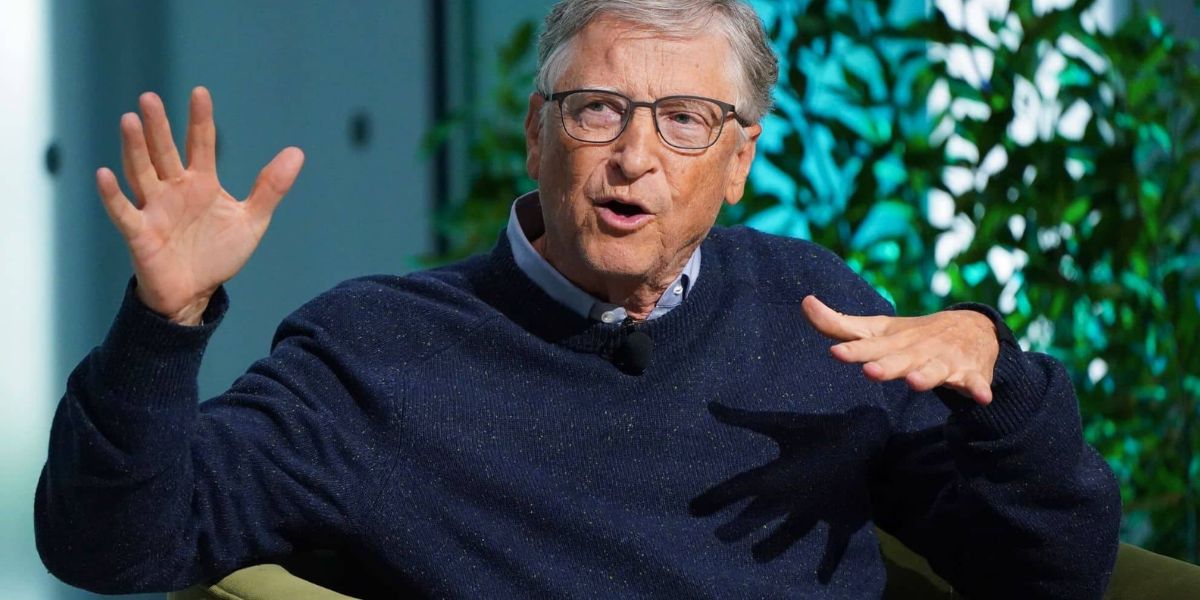Artificial intelligence seems to be taking over all sectors of this society and, in response to this, many people are seeing their professional futures start to shake. Everything is advancing, absolutely everything, and now we find artificial intelligences in absolutely every place we look.
In this highly technological context where everything is moving so fast, Bill Gates has added fuel to the fire instead of trying to put it out, with a prediction that has not left anyone indifferent: in less than ten years, human tasks will be practically non-existent: everything will be replaced by artificial intelligence. That’s what the mogul said on Jimmy Fallon’s show and later in a talk at Harvard. It sounds like fiction, but every day, we’re closer to starring in a scene from I, Robot.
What is Gates’ dream?
Easy: for him, artificial intelligence is not just a tool to help you with university assignments, it is the next big leap in the digital revolution (a revolution he himself helped start).
If his goal before was to put a computer in every home, today he dreams (and also warns) about a world where intelligence will be free, omnipresent, and capable of replacing anyone, including the brightest minds in fields like medicine or education.
Of course, with great power comes great responsibility, as the saying goes, and Gates himself acknowledges that the speed AI is developing is truly frightening, and that probably, humans will see their jobs replaced very soon.
Education and medicine, the first sectors to be transformed
If we talk about the field of education, changes are already on the horizon, just as Elon Musk also predicts, since teachers could be replaced by systems capable of teaching, motivating, and correcting students in real time. The future of education seems scary, we’re no longer talking just about digital whiteboards, but an algorithmic pedagogy that could make teachers disappear.
On the other hand, another field where AI could really stir things up is medicine, where Gates sees a more immediate and revolutionary impact. Gates believes that artificial intelligence will surpass doctors in complex diagnoses, analysing genetic data, symptoms, clinical databases, and scientific publications at a speed impossible for the human brain. This, instead of creating tension or eliminating jobs, would allow each person to receive high-quality healthcare.
Likewise, he reminds us that there are collapsed healthcare systems and regions where people can’t even access a doctor, so with this change, healthcare would no longer depend on your location on the map. That one sounds better, right?
Progress or threat?
It’s clear that Bill Gates is no fool and is fully aware of the dangers we face with the use of artificial intelligence. And in the same way that he insists AI can democratize and become a widely used and public tool, he’s also aware that it can amplify inequality, polarize society, or fuel disinformation, just like what happened with social media, for example, the old Twitter, which today is heavily marked by misinformation and political divides.
And of course, that’s where personal morals come in. The problem is not having technology, of course, the problem is how we use it.
For his part, Mustafa Suleyman, Microsoft’s AI CEO and author of The Coming Wave, is blunt in his opinion. He doesn’t think AI will just be a helpful tool, he believes AI will directly replace jobs, and that the process will be quite tough, since AI leads us to a world where many hands are no longer needed. So it will probably reopen debates about things like a universal basic income or structural inequality.
The future is not written, and we can’t anticipate it, but it’s clear that AIs are here to stay, and whether they’re good or dangerous will mostly depend on who leads them. Will we learn to live with them?


 by
by 




